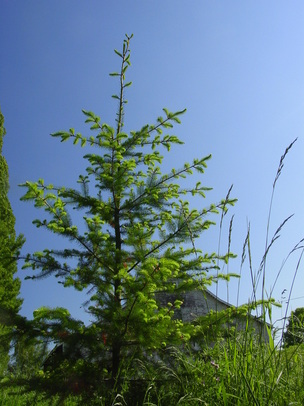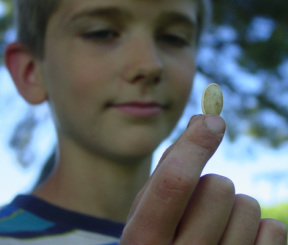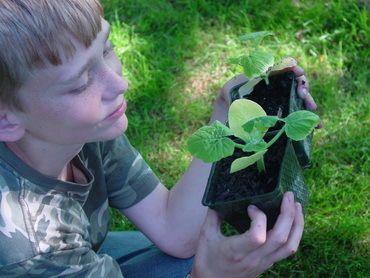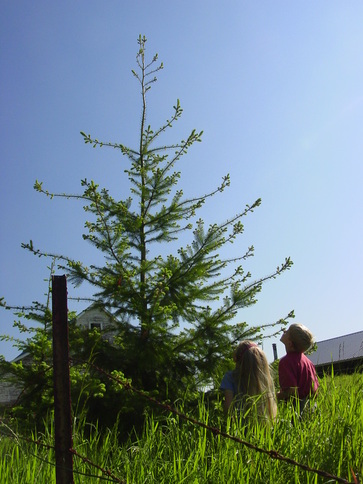 The tale of David’s mighty men is the story of unparalleled loyalty and valor. Josheb-basshebeth used his spear to kill eight-hundred at one time. Shammah was abandoned by his fellow-soldiers. While they beat a hasty retreat, Shammah took his stand in a plot of lentils and single-handedly defeated the pursuing Philistines. Then there’s Benaiah: He engaged an armed Philistine in hand-to-hand combat wielding only his staff. Somehow he snatched the Philistine’s spear, then used the enemy’s own weapon to kill him. In one sense, Hebrews 11 is a New Testament parallel to the tally of David’s mighty men in II Samuel 23. Unprecedented acts of courage and bravery and unflinching loyalty to God in the face of torture and death won these men and women a place of honor among the worthies. They “. . . stopped the mouths of lions, quenched the power of fire, escaped the edge of the sword . . . Some were tortured . . . They were stoned, they were sawn in two . . . They went about in skins of sheep and goats, destitute, afflicted, mistreated . . ." (Hebrews 11:33–38). These heroes risked everything for God—and frequently they lost it all. They marched into hell’s inferno, not counting their own lives dear. The author concludes, “And all these, though commended through their faith, did not receive what was promised, since God had provided something better for us, that apart from us they should not be made perfect” (Hebrews 11:39–40). In other words, God did not intend these heroes to cross the finish line alone—their faith motivates us in our own fight for the faith. That is the thrust of Hebrews 11 which challenges us to rise up by faith and to take our stand alongside men and women who have stood for God in days gone by. Every generation needs the testimony of those who are wholly abandoned to God, those who count no price for obedience too high, those whose loyalty to Christ supersedes personal comfort and demands sacrifice. When I read “that apart from us they should not be made perfect,” I rejoice. There is still time to enter the select band of God’s chosen warriors. And down through more than twenty centuries, that’s exactly what men and women have done. With faith in God, they stood the test of inconceivable suffering, they believed the truth against unthinkable odds, they stood alone against the enemy when everyone else beat a hasty retreat. They knew deprivation and hunger. They joyfully accepted the plundering of their property. They claimed the name of Jesus when that name spelled death. There’s still time for us to join their ranks. “. . . apart from us they should not be made perfect.” That’s good news. For emphasis, the writer to the Hebrews makes his point twice. Verse 13 says, “These all died in faith, not having received the things promised . . .” But stop and think what those words meant to the men and women listed in the roll. The men and women of faith listed in Hebrews 11 never experienced the fulfillment of the promise: “These all died in faith, not having received the things promised . . .”  I don’t like waiting, but I can understand the significance of planting now for a future harvest. I can picture sowing pumpkin seeds and waiting through the months of spring, summer, and into the fall to reap great orange fruits like my son Jonathan grew last year. It’s a long time to wait, but I can feature holding on that long, weeding, watering, and hoping.  Bit by bit, I can see progress; harvest is coming. Soon I’ll secure the reward. But the faith of these men and women looked beyond this life altogether, not just to a future time of blessedness when God would make everything right. Yes, Abraham received his son—but he was only one little boy, not the promised multitude. Yes, Joseph experienced the fulfillment of his vision—but he died while his people were strangers in a foreign land.  The true test of faith isn’t like planting pumpkins—it’s more like planting fir trees. Abraham looked for a city whose builder and maker is God—but he never found it. Joseph looked for the return of his people to the land of promise—but He never saw it. Moses looked for the coming of the great Deliverer—but he didn’t live to see His birth. I’ve planted several seedling Douglas firs around our property. When I stuck them in the earth, they were just sticks, but now they’re growing quickly—they hold great promise. Perhaps they’ll rival the old growth forest that once grew where our house now stands. Perhaps they’ll reach hundreds of feet into the sky. Perhaps . . . in several hundred years.  It’s strange to think of planting for a time I’ll never see. But that’s the nature of faith. For now, I’ll enjoy the young fir trees as they leap to new heights. I’ll appreciate the screen they’re building, foot-by foot, between me and my neighbor. And, if I live for another fifty years, I’ll revel in the teenage trees towering above me. But the glory of their maturity is for another generation.  It’s hard to think outside my own life: to remember that what I’m planting may be for someone else to harvest, that quiet deeds of faithfulness or heroic actions of self-sacrifice may not be rewarded this side of the Great Divide. But that’s the nature of faith. The story is told of Henry Morrison and his wife returning home to America after forty years of faithful service for Christ in Africa. When they arrived in New York harbor, a huge party awaited the ship. The media was there in force, the band played, and flags flew. But the fanfare wasn’t for the missionaries. Teddy Roosevelt was on board the ship, returning from a hunting expedition to the dark continent, and his country celebrated his return. No one was there to herald the missionaries or even to quietly slip arms around them and say, “Welcome home.” Troubled, Henry sought the Lord. When he arose from his knees, he told his wife, “. . . it seemed as though the Lord put His hand on my shoulder and simply said, ‘But Henry, you are not home yet!’” So by faith I’ll pitch my tent with Abraham and live as in a foreign land—“. . . looking forward to the city that has foundations, whose designer and builder is God” (Hebrews 11:10). By faith I’ll hang in when all I want to do is to hang it up—waiting for God to do what He has promised. In His own good time. “The Lord is not slow to fulfill His promise as some count slowness, but is patient toward you . . .” (II Peter 3:9). By faith I’ll plant fir trees—taking root in love and reaching for eternity. “But I do not account my life of any value nor as precious to myself, if only I may finish my course . . .” (Acts 20:24). I’m not home yet either. © June 2011 by Robert G. Robbins
2 Comments
Sally Jane Love
6/9/2011 08:22:03 am
Lovely, Rob! Encouraging!!! Thanks...
Reply
6/10/2011 10:28:29 pm
What an encouraging post! It reminded me of Jeremiah 29:11-14. Even though the circumstances of life may look difficult to me, puzzling, or even beyond my solving, God knows the plans He has for me. I added II Peter 3:8-9 next to it. The Lord is not slow as some count slowness, but patient- so glad! God's ways are not my ways, but His are always the best. Thank you for your encouraging blog- keeping God at the front and center of everything. Love your photos as well!
Reply
Leave a Reply. |
Archives
October 2017
|
 RSS Feed
RSS Feed